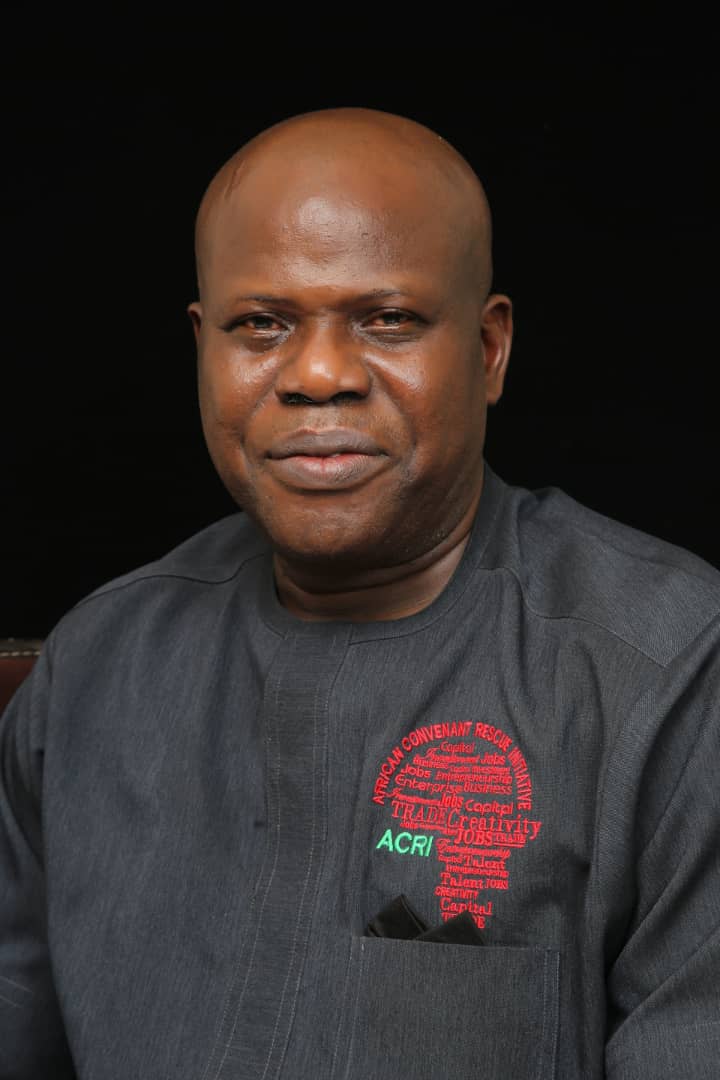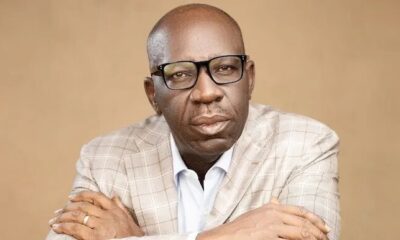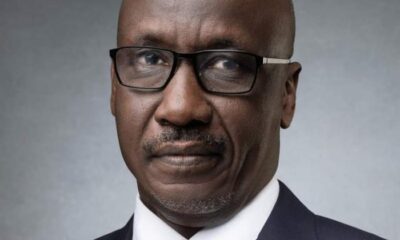Columnists
De-Escalation: The Key to Peaceful Coexistence -By Richard Odusanya
I daresay, that, our world and immediate environment will be great if we could reconsider and reconnect with love and peaceful cohabitation. Finally, permit me to share with us the profound words of encouragement of Bernard C. Meltzer, a United States radio host for several decades. Bernard posited: “Before you speak ask yourself if what you are going to say is true, is kind, is necessary, is helpful. If the answer is no, maybe what you are about to say should be left unsaid.”

Let’s begin with the profound words of Friedrich Gustav Emil Martin Niemöller, a German theologian and Lutheran pastor. He is best known for his opposition to the Nazi regime during the late 1930s and for his widely quoted 1946 poem:
“First they came for the socialists, and I did not speak out—Because I was not a socialist.
“Then they came for the trade unionists, and I did not speak out—Because I was not a trade unionist.
“Then they came for the Jews, and I did not speak out—
Because I was not a Jew.
“Then they came for me—and there was no one left to speak for me.”
It signposts, indeed confirms, the poem serves as a reminder of the importance of standing up against injustice and the dangers of remaining silent in the face of discrimination or persecution. It has been used to emphasize the significance of defending the rights and freedoms of all, regardless of one’s own immediate circumstances. Therefore, the need for de-escalation is key to actualization of unity, stability and peace.
Having written extensively on issues of peaceful coexistence, tolerance and discrimination which includes public enlightenment and reorientation of the citizens on religious tolerance. Tolerance is a powerful word. It represents a set of values that we as a society hope to follow, conveying inclusion, openness and respect, and encouraging acceptance of others. It is a virtue that many aspire to as it creates a world where discrimination is obsolete.
Of course, it is unrealistic to imagine a world that fully embraces diversity and tolerance, but that shouldn’t stop us from working towards it and making as much of a difference as we can. Nonetheless, the way forward is by educating ourselves and future generations about tolerance, empathy and the value of diversity.
Consequently, this contribution interrogates the dialectic of the theory and praxis of tolerance, which resonate from the question of tolerance and the concept of tolerance. In this case, it is important for us to understand tolerance and why it is also usually being recommended as a sure way from violence that results from intolerance.
Considering the aforementioned perspectives, it is important to apply the key of peaceful coexistence. In so doing, it is argued that tolerance is not enough because of the inherent problematique. Thus a focused, and modicum of dialogue is advocated, which in itself should be able to overcome the consequences of dialogueritis, but one that calls for greater frank and candid involvement in a pluralist society.
In conclusion, I daresay, that, our world and immediate environment will be great if we could reconsider and reconnect with love and peaceful cohabitation. Finally, permit me to share with us the profound words of encouragement of Bernard C. Meltzer, a United States radio host for several decades. Bernard posited: “Before you speak ask yourself if what you are going to say is true, is kind, is necessary, is helpful. If the answer is no, maybe what you are about to say should be left unsaid.”
Finally, like the adopted Four-way Test of the Rotary International: Is it the truth? Is it fair to all concerned? Will it build goodwill and better friendships? Will it be beneficial to all concerned? It is called “The Four-Way Test of the things we think, say or do.”
Richard Odusanya
odusanyagold@gmail.com


















